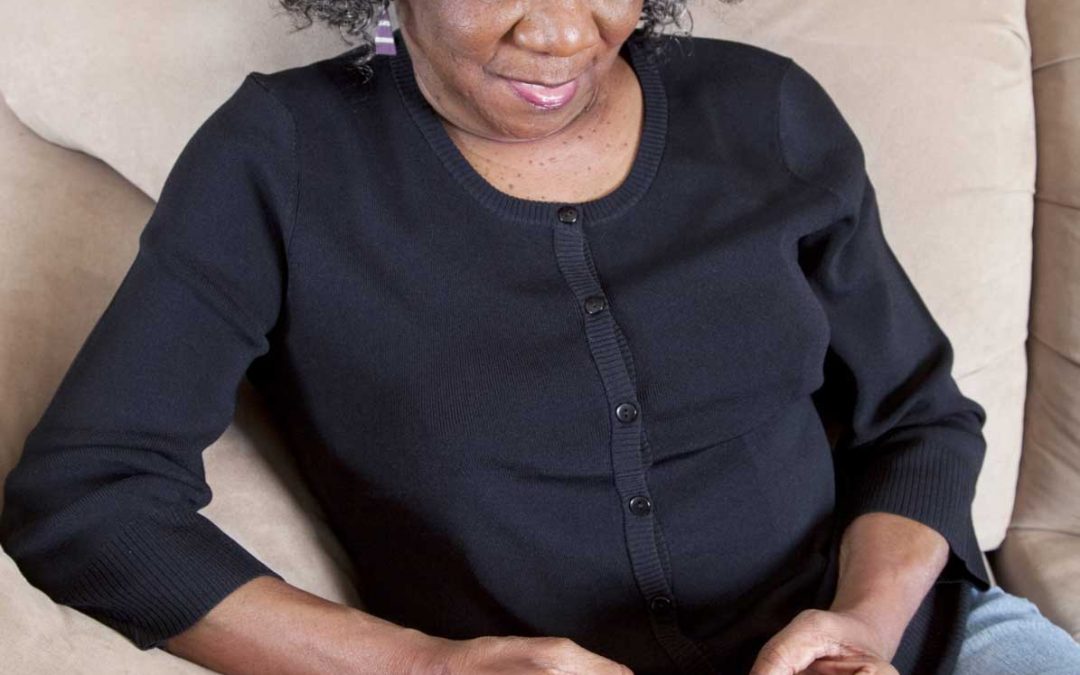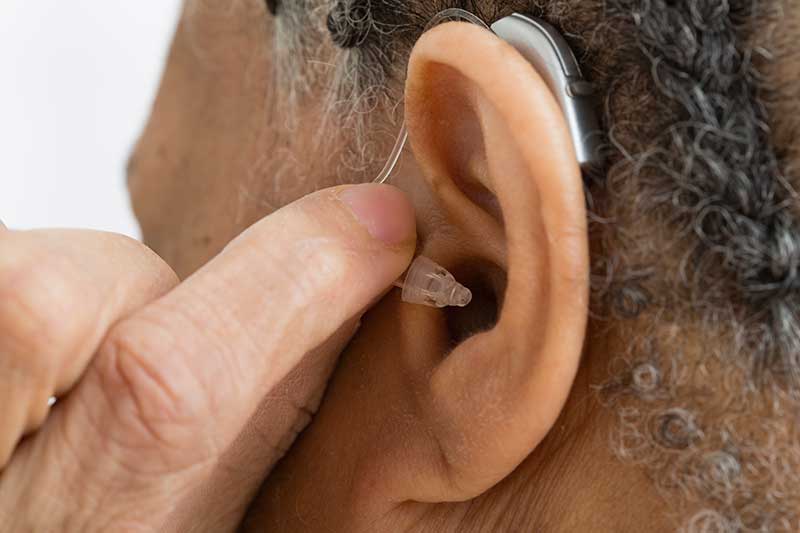Better Hearing Blog

Another Inconvenient Truth
When older adults shun the use of hearing instruments, it’s often due to the stigma attached to wearing one. Many figure they can endure the inconvenience of missing a few words of conversation if it helps to preserve their youthful visages. The fact is, however, that hearing-impaired people of any age with untreated hearing loss stand to lose a whole lot more than a few bits of conversation. According to a recent small study, more than half of the 100 respondents reported that they could not fully understand what their healthcare practitioners told them, while 43 indicated that background noise and clinicians who talked too fast or too quietly hindered their ability to understand their physicians’ diagnosis and advice.
We believe an unaddressed hearing impairment is actually more noticeable than a hearing instrument, and we urge you to get help if your hearing isn’t what it once was. Our methods at BETTER HEARING CENTER, include using the most sophisticated technology available today in the hearing industry. This, coupled with the astonishing hearing aids now manufactured and our professionalism and personal attention to your needs, ensures your complete satisfaction with your hearing device. We are New Hampshire’s premier hearing care provider.
P.S. Severe hearing impairments left untreated expose individuals to the possibility that they will not hear ringing phones, doorbells, shouted warnings, and sirens.

Getting the Right Signal
One of the keys to improving the understanding of speech in a noisy environment involves improving the “signal-to-noise” ratio (SNR). An SNR figure indicates how many decibels louder speech is than the surrounding noise. The higher the SNR, the easier it is for the listener to understand speech. One way to enhance the separation between speech and noise, and thus improve the SNR, is to use a “directional” hearing instrument. Rather than amplify sound from all directions (as omnidirectional hearing instruments do), a directional hearing instrument amplifies sound from in front of the listener more than from behind. This helps listeners understand conversation by improving the SNR, and it can also improve the wearer’s ability to localize sounds.
Although more sophisticated and technologically advanced than ever before, today’s hearing instruments still keep one simple goal in mind—helping the hearing impaired hear better by making the most of the hearing they have. Hearing instruments of today are becoming smaller, more comfortable, and more invisible, but their benefits are getting bigger and broader. Come find out what’s new at BETTER HEARING CENTER. You just may hear some things you haven’t heard in a long time. We are New Hampshire’s premier hearing care provider.
P.S. A signal-to-noise ratio that is greater than 1:1 means that the signal is louder than the noise.

Coming to Your Senses
Our ability to feel, see, hear, taste, and smell is what connects us to other people and the outer world in general. Thus, it comes as rather sobering news that the first study to measure full-spectrum sensory damage reveals that 94% of older (57 to 85 years) adults have at least one sensory deficit, 38% have two, and 28% have three. The study goes on to reveal that nearly two-thirds (64%) of study participants suffered from a significant deficit in at least one sense. Twenty-two percent had major deficits in two or more senses. These findings are important for no other reason than a similar study found that hearing impairment may be associated with an increased risk of death.
Some call deafness the silent epidemic. It is painless and invisible, yet it is estimated that, at some point in their lives, more than 275 million people around the world suffer from it. The reasons vary and include medical conditions, noise pollution, aging, misusing personal musical devices, diet, and heredity. Men and women, young and old—no one is immune to the loss of this precious sense. Find out the state of your hearing. Consult with us at BETTER HEARING CENTER. Our services include thorough consultations, comprehensive testing, expert evaluations, custom fittings, and follow-up care. We are New Hampshire’s premier hearing care provider.
P.S. Hearing deficits can often be corrected by using a hearing instrument. While the same can generally be said of vision loss and eyeglasses, it’s much more difficult to compensate for loss of smell, touch, and taste.

Cool, Calm and Connected
As increasing numbers of people have come to view hearing instruments as a technology extension to the smartphone, their coolness factor has risen commensurately. No longer regarded simply as a means of improving hearing, hearing instruments with Bluetooth connectivity have attained new status as communication and information-gathering devices. While once only compatible with Apple’s iOS mobile operating systems, newer Bluetooth hearing instruments offer universal connectivity, making them useable with an Android device or even a classic flip phone that is Bluetooth-ready. The latest Bluetooth hearing instruments can answer a phone call with a press of a button on the hearing aid. They have built-in microphones that feature automatic voice pickup, allowing people to have two-way conversations through their hearing instruments.
If you or someone close to you are considering wearing a hearing aid, your timing couldn’t be better. The digital revolution has vastly improved hearing aid features and sound quality without increasing their size. This combination of technology and cosmetic appeal opens up a whole new world of hearing possibilities. You can always rely on a certified clinical audiologist at BETTER HEARING CENTER to address your needs on a one-to-one basis. Our goal is to find the most appropriate solution to each individual’s particular hearing concerns. We are New Hampshire’s premier hearing care provider.
P.S. A card-sized TV connector enables hearing instruments to plug into the back of a TV to pair with Bluetooth hearing instruments to stream high-fidelity TV sound.

Regrowing Hair (Cells)
Central to the type of hearing loss known as “sensorineural” is damage to the tiny “hair cells” that reside within the cochlea, where these sensory receptors convert sound waves into electrical signals that they transmit through the acoustic nerve to the brain. Unfortunately, once hair cells become damaged by loud noise, they do not have the ability to regenerate. As a result, hearing loss associated with hair-cell death is permanent. While sensorineural hearing loss lends itself to effective treatment with a hearing instrument, researchers continue to search for a way to regrow hair cells. Currently, two studies are underway, both of which involve injecting experimental medicines into the ear with the intention of repairing the damage that causes hearing loss.
One key element in addressing any hearing impairment you might have includes complete hearing testing by a certified clinical audiologist to determine the type and degree of your particular loss. This is the only way BETTER HEARING CENTER can help you choose the most appropriate hearing instrument for your impairment. And while your impairment is unique to you, the impact of hearing loss is similar among most people—diminished communication and loss of quality of life. Don’t put up with it. Call us instead to arrange a comprehensive hearing test. We are New Hampshire’s premier hearing care provider.
P.S. One of the experimental drugs that researchers are hoping will regenerate hair cells is a treatment codenamed FX-322, which stimulates progenitor cells to grow into healthy hair cells.

Notable Hearing Impaired Musicians
Eric Clapton recently expressed concerns that he had tinnitus and was “going deaf.” No less a musical talent than Ludwig van Beethoven shared these same concerns as he progressed from hearing buzzing in his ears (tinnitus) at age 26 to progressive hearing loss and total deafness by the age of 44. Yet, he still continued to compose music. He was able to do so by holding a pencil in his mouth and touching the other end to the soundboard of the piano as he played. Using the same principle that makes a bone-conduction hearing instrument work, Beethoven was able to conduct sound vibrations through the pencil to his teeth to his skull bones and into his inner ear.
The human ear is an amazing instrument. When its parts break down or fail to function properly, however, today’s remarkable technology is doing its best to keep pace to help the hearing impaired once again enjoy the sounds of the world around them. If you have concerns about your hearing, or a parent or other family member’s hearing abilities, we hope you’ll feel comfortable discussing today’s options for better hearing with a certified clinical audiologist at BETTER HEARING CENTER. Most insurances accepted for hearing evaluations_. We are New Hampshire’s premier hearing care provider._
P.S. By placing a vibrating tuning fork between their back teeth, musicians are able to hear a note via bone conduction, leaving both hands free to tune.

